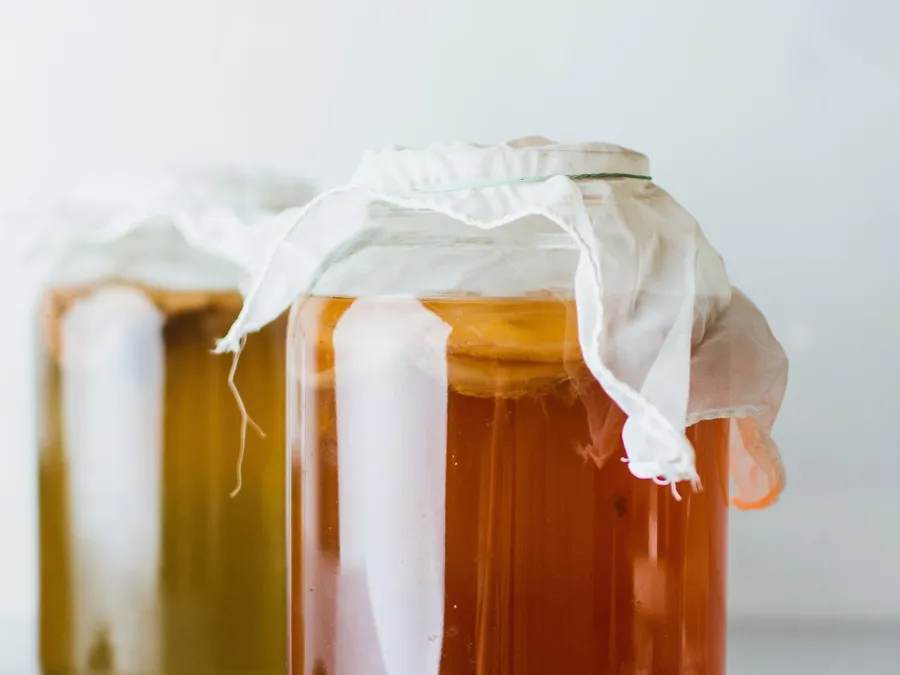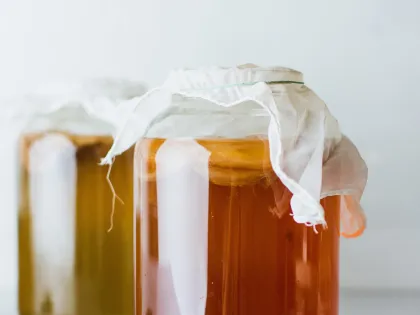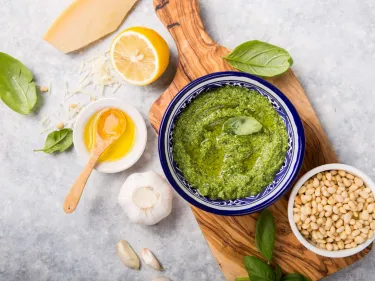What is kombucha?
Kombucha is a fermented tea. It is made from a green or black tea base with white sugar, which has been fermented with a type of “tea fungus” called a symbiotic culture of acetic acid (vinegar) bacteria and yeast for one to two weeks. If you haven’t tried it, kombucha is a quirky-tasting drink. Depending on what’s added to it, it’s best described as a sour apple cider, perhaps with vinegary notes.
Should I drink it?
Some of the health claims for kombucha include detoxifying the blood, reducing cholesterol levels, reducing blood pressure, protection against cancer, mood enhancing effects, antibacterial effects, and counteracting ageing. But are these claims backed up by science? – I’m afraid not.
There is some research showing that lightly fermented foods such as kombucha contain healthy bacteria to assist with gut health. But this research is still in its infancy and more research is required to confirm this. To maintain good gut health, the best thing you can do is eat a wide variety of healthy foods.
As for all of the other health claims; there is only evidence from lab bench studies and animal studies and no published studies come from human clinical trials. So we do not know if the beneficial effects identified in animals (i.e., antimicrobial, antioxidant, anti-cancer and anti-diabetic properties) will translate in humans. So until this happens I would advise to stick to eating a wide variety of healthy foods from the national dietary guidelines which are backed up by the science (and in humans).
For more info check this out: https://theconversation.com/what-is-kombucha-and-how-do-the-health-claims-stack-up-87180













